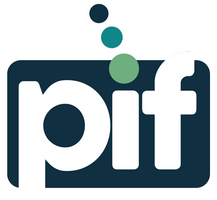Source: Andaria
Why is this an issue?
Banks must comply with strict regulations, including anti-money laundering (AML) and know-your-customer (KYC) requirements, to ensure that they are not inadvertently facilitating illegal activities such as money laundering or terrorism financing. As a result, they often require significant documentation and background checks before opening an account for a new customer. Many traditional banks also still work with legacy technology and processes, which can sometimes mean they lack agility in keeping up with changes in the broader business environment.
Startups and smaller companies usually don’t have a long track record of financial activity, which can make it more difficult to satisfy banks’ KYC requirements. As a result, they can often have their account application ‘in review’ for several months, awaiting a final approval or decline. Also, it’s common for banks to ‘veto’ some industries or types of business altogether, because they are deemed to sit outside their risk appetite. Startups, tech companies, crypto exchanges and gaming companies are among those who can really struggle to open a current account with traditional banks. Even when those businesses are regulated entities, they are often considered high-risk, or too much of an ‘unknown quantity’ for mainstream providers.
Beyond account opening
For those who do manage to open an account, it can still be a lengthy process and result in an account setup and fee structures that aren’t ideal for the business. For instance, standard charges for BACS and CHAPS transfers and especially for those international payments made via SWIFT are too costly for many startups and SMEs. Another example is that some banks don’t automatically support outgoing international payments, despite a growing demand for cross-border services.
In recent years, a variety of newer providers have emerged to offer a more suitable alternative for companies that have difficulty opening traditional bank accounts, or that cannot find a good match for the services and pricing they need. Many of these companies, including EMIs (electronic money institutions) like Andaria, tend to offer digital payment solutions, e-wallets, and multi-faceted payment accounts that can provide some of the benefits of a traditional bank account without the pain of the slow application process and high fees. While EMIs still have to adhere to strict KYC and other regulations, they tend to have a more flexible risk appetite and faster processes for assessing and onboarding new customers.
Choosing a banking provider or payments partner – what to look for
Whether your business has found it difficult to open a bank account, or you’re just looking for a more agile provider, there are several important factors to consider:
Fees and charges: It’s important to look for a provider that offers competitive fees and charges. This includes account maintenance fees, transaction fees, and other charges. Make sure you check the fees for different payment methods so you can see what the overall cost picture will look like for your individual business.
Payment choice: Look for a provider that offers a range of payment methods that meet your business needs. This is particularly important if you are operating internationally – you need to ensure you can use the fastest and most cost-effective payment routes so you can efficiently manage your cash flow.
Ease of use: The banking provider or payments partner should provide intuitive interfaces and streamlined processes. This can save time, reduce the risk of errors and leave you free to focus on your core business.
Security: Robust security measures help to protect your business and your customers’ financial information. This includes encryption, fraud detection, tokenisation and more.
Customer support: Look for a provider that offers responsive customer support, with knowledgeable staff available to answer your questions and address any issues that may arise.
Integration with other tools: If your business uses other tools such as accounting software or ledger systems, it’s important to choose a provider that integrates with those tools, making it easy to manage your finances and payments. If you can find one that offers a simple API integration, even better!
If your business is struggling to open a current account, or if you’re not satisfied with your business banking provider, Andaria would love to help. Read more about our payment solutions, or get in touch with the team to discuss your needs.



